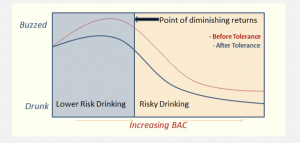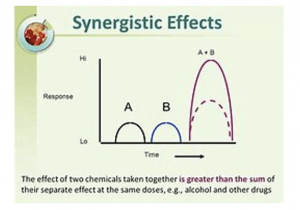In honor of Eating Disorders Awareness Week this week, we will be highlighting stories from DePaul students in recovery from eating disorders. In this post, we will be spotlighting Ashantis*, a 3rd year student in DePaul’s Masters in College Counseling and Student Affairs program. They are also in recovery from an eating disorder and wanted to share their experiences and thoughts about eating disorder recovery.
Help us debunk some myths about eating disorders and eating disorder recovery.
The most important myth that Ashantis wanted to debunk is the myth that eating disorders have a specific “look”. Anyone, regardless of body type can struggle with any eating disorder. It is important to remember that everyone’s struggles with mental health disorders are valid struggles, regardless of what they look like.
If you could give advice to anyone thinking about starting their eating disorder recovery journey, what would you tell them?
Ashantis wanted to start by saying that eating disorder recovery is challenging. One of the main reasons why she sees recovery as a challenge is because it is heavily focused on unlearning certain behaviors and relearning others. However, she wanted to stress that recovery is worth the hard work. They described how, after being on their recovery journey for several years, their mind is clearer and they are better able to focus on things such as school, work, and life. While some days are harder than others in the process of recovery, the work is well worth it!
What else do you want the world to know about eating disorders, eating disorder recovery or mental health?
Ashantis wanted to use this section to speak on how eating disorder behaviors and thoughts are quite common in our everyday lives. Diet culture, specifically, holds a place in society that makes many of us feel that we need to change our weight. This just goes to show the importance of accepting and recognizing the beauty in bodies of all sizes.
If you would like to learn more about Ashantis and her recovery journey, check out her Instagram (@iamashantis)!
If you would like more information about resources and recovery at DePaul, feel free to email the Office of Health Promotion & Wellness at hpw@depaul.edu. Happy Eating Disorders Awareness Week!
*Name shared with permission

